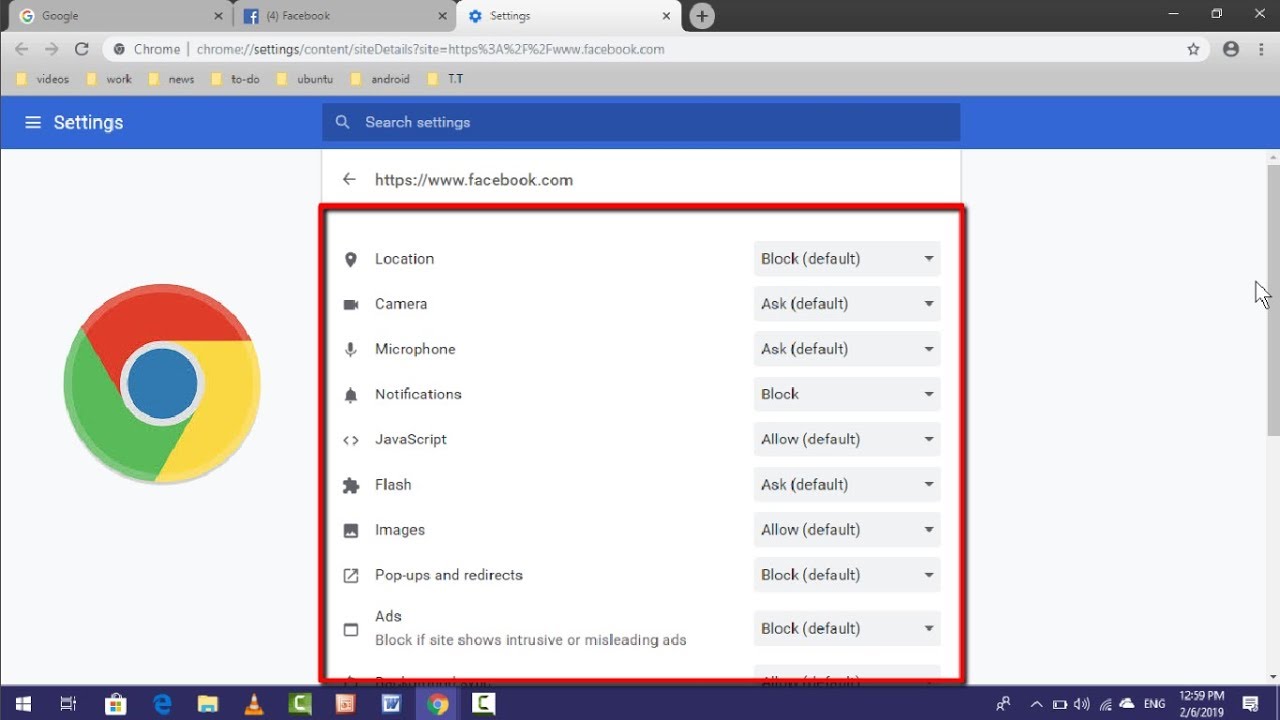Introduction
In today's digital age, web browsers have become an integral part of our daily lives. Among the plethora of browsers available, Google Chrome stands out as one of the most popular choices, offering a seamless and feature-rich browsing experience. However, as we navigate the vast expanse of the internet, our online activities are constantly being tracked and recorded through the use of cookies.
Cookies, in the context of web browsing, are small pieces of data that websites store on our devices. These tiny files serve various purposes, such as remembering login credentials, tracking user preferences, and providing personalized content. While cookies can enhance our browsing experience by streamlining certain processes, they also raise concerns regarding privacy and data security.
As individuals become increasingly conscious of their online privacy, the need to control the information that websites can access through cookies has become more pronounced. This has led to a growing interest in understanding how to manage and block cookies, particularly on widely used browsers like Chrome.
In this article, we will delve into the world of cookies, exploring their functions and implications. We will also discuss the reasons why users may choose to block cookies on Chrome, shedding light on the potential benefits of doing so. Furthermore, we will provide a comprehensive guide on how to effectively block cookies on Chrome, empowering users to take control of their online privacy and security.
By the end of this article, readers will gain a deeper understanding of cookies, their impact on online privacy, and the practical steps they can take to manage and block cookies while using the Chrome browser. Let's embark on this enlightening journey to unravel the mysteries of cookies and empower ourselves with the knowledge to navigate the digital realm with confidence and control.
Understanding Cookies
Cookies, in the context of web browsing, are small pieces of data that websites store on users' devices. These data files are designed to serve various functions, contributing to a more personalized and efficient browsing experience. When a user visits a website, the site may send a cookie to the user's browser, which is then stored on the user's device. This cookie contains information that allows the website to recognize the user's preferences, activities, and interactions during subsequent visits.
Types of Cookies
Session Cookies
Session cookies are temporary files that are erased when the user closes the web browser. These cookies are essential for enabling certain website functionalities, such as maintaining a user's logged-in status or remembering items in a shopping cart during a single browsing session.
Persistent Cookies
Unlike session cookies, persistent cookies remain on the user's device even after the browser is closed. These cookies are designed to retain user preferences and data for future visits to the same website. They can store information such as login credentials, language preferences, and personalized settings.
Functions of Cookies
Personalization
Cookies play a crucial role in personalizing the browsing experience for users. Websites utilize cookies to remember user preferences, such as language settings, theme choices, and customized layouts. This personalization enhances user convenience and streamlines the interaction with websites.
Tracking and Analytics
Cookies are commonly used to track user behavior and gather analytical data. This information helps website owners understand how users navigate their sites, which pages are visited most frequently, and how users interact with content. Such insights enable website optimization and content customization.
Authentication and Security
Cookies are instrumental in managing user authentication and enhancing security measures. They help maintain a user's logged-in status, preventing the need for repeated login credentials. Additionally, cookies contribute to security protocols by verifying user identities and authorizing access to secure areas of a website.
Privacy and Security Considerations
While cookies offer undeniable benefits in terms of personalization and user convenience, they also raise concerns related to privacy and data security. As cookies store user information, there is a potential risk of unauthorized access to sensitive data. Moreover, the accumulation of extensive user data through cookies can lead to privacy implications, as users may feel their online activities are being excessively monitored and tracked.
Understanding the nature and functions of cookies is essential for users to make informed decisions about managing their online privacy. By gaining insight into how cookies operate and the implications of their usage, individuals can take proactive steps to control the information that websites can access through cookies, thereby safeguarding their privacy and enhancing their browsing experience.
Why Block Cookies on Chrome
Blocking cookies on Chrome can be a strategic approach for users who prioritize their online privacy and seek to mitigate potential security risks. There are several compelling reasons why individuals may choose to block cookies while using the Chrome browser:
Enhanced Privacy Protection
By blocking cookies on Chrome, users can exert greater control over the data that websites can collect about their browsing activities. This proactive measure helps minimize the tracking of personal information, such as browsing history, preferences, and interactions, thereby reducing the exposure of sensitive data to third-party entities.
Mitigation of Targeted Advertising
Cookies are frequently utilized to track users' online behavior and preferences, enabling targeted advertising campaigns. By blocking cookies on Chrome, individuals can limit the extent to which their browsing patterns are monitored and utilized for personalized advertising, thereby reducing the influx of targeted ads and preserving a more private browsing experience.
Prevention of Cross-Site Tracking
Third-party cookies, in particular, can facilitate cross-site tracking, allowing entities to monitor users' activities across multiple websites. Blocking cookies on Chrome can help thwart such cross-site tracking efforts, enhancing users' control over their online footprint and reducing the potential for data aggregation across diverse online platforms.
Minimization of Data Accumulation
Cookies contribute to the accumulation of user data, which can raise concerns about the extent of information stored by websites. By blocking cookies on Chrome, individuals can minimize the volume of data collected about their online behaviors, fostering a more restrained approach to data retention and mitigating the risk of excessive data accumulation.
Protection Against Security Vulnerabilities
While cookies serve legitimate purposes, they can also be exploited as vectors for security breaches and unauthorized access to user information. Blocking cookies on Chrome can serve as a preventive measure against potential security vulnerabilities associated with certain types of cookies, bolstering users' defenses against malicious activities.
Empowerment of User Control
By actively blocking cookies on Chrome, users assert their autonomy in managing their online privacy and data exposure. This proactive stance empowers individuals to dictate the extent to which websites can track and collect their information, aligning with the growing emphasis on user empowerment and informed consent in the digital landscape.
In essence, the decision to block cookies on Chrome reflects a conscientious approach to safeguarding online privacy, mitigating targeted advertising, and fortifying security measures. By understanding the implications of cookies and the benefits of controlling their usage, individuals can make informed choices to enhance their browsing privacy and security while using the Chrome browser.
How to Block Cookies on Chrome
Blocking cookies on Chrome can be a straightforward process, empowering users to exert greater control over their online privacy and data security. By implementing the following steps, individuals can effectively manage and block cookies while using the Chrome browser:
1. Accessing Chrome Settings
To initiate the process of blocking cookies, users should first access the settings menu within the Chrome browser. This can be accomplished by clicking on the three-dot icon located in the upper-right corner of the browser window, which will reveal a dropdown menu. From the menu, select "Settings" to proceed to the browser's configuration options.
2. Navigating to Privacy and Security Settings
Within the Chrome settings, users should navigate to the "Privacy and security" section, which houses a range of options related to managing browsing data and site permissions. By selecting this section, users can access the tools necessary to control the handling of cookies and other site data.
3. Managing Cookies and Site Data
Under the "Privacy and security" section, users will find the "Cookies and other site data" option. Clicking on this feature will lead to a menu where users can customize their preferences regarding cookies. Here, users have the ability to block third-party cookies, which are often utilized for cross-site tracking, as well as to manage exceptions for specific websites.
4. Enabling the Block Third-Party Cookies Option
To proactively block third-party cookies, users can toggle the corresponding setting to enable the blocking of these cookies. This action serves as a pivotal step in preventing cross-site tracking and minimizing the dissemination of user data to external entities.
5. Managing Site-Specific Cookie Settings
In addition to blocking third-party cookies, users can manage site-specific cookie settings by accessing the "Site settings" option within the Chrome settings menu. This feature allows users to view and control the cookie permissions granted to individual websites, providing a granular approach to cookie management.
By following these steps, users can effectively block cookies on Chrome, thereby enhancing their control over online privacy and data security. This proactive approach aligns with the growing emphasis on user empowerment and informed consent in the digital landscape, enabling individuals to navigate the online realm with confidence and autonomy.
Conclusion
In conclusion, the realm of cookies within the digital landscape is multifaceted, encompassing both convenience-enhancing functionalities and privacy-related considerations. As users navigate the vast expanse of the internet, the ability to understand, manage, and block cookies on the Chrome browser empowers them to take charge of their online privacy and data security.
By gaining a comprehensive understanding of cookies and their functions, individuals can make informed decisions regarding the management of their online data. The distinction between session cookies and persistent cookies, along with the diverse roles cookies play in personalization, tracking, and security, underscores the nuanced nature of these digital entities.
The decision to block cookies on Chrome is driven by a myriad of factors, including the desire for enhanced privacy protection, the mitigation of targeted advertising, and the prevention of cross-site tracking. By proactively managing cookies, users can minimize the accumulation of personal data, fortify their defenses against potential security vulnerabilities, and assert their autonomy in controlling their online footprint.
The practical steps outlined for blocking cookies on Chrome provide users with a clear and accessible pathway to customize their cookie preferences, thereby aligning their browsing experience with their privacy and security priorities. By leveraging the settings and options within the Chrome browser, individuals can tailor their cookie management approach to suit their specific needs and preferences.
Ultimately, the ability to block cookies on Chrome represents a pivotal aspect of user empowerment within the digital sphere. It reflects a conscious effort to navigate the online landscape with vigilance, awareness, and autonomy, fostering a more secure and privacy-respecting browsing experience.
As individuals continue to prioritize their online privacy and seek greater control over their digital footprint, the knowledge and tools to manage and block cookies on Chrome serve as valuable assets. By embracing these capabilities, users can navigate the digital realm with confidence, knowing that they have the means to safeguard their privacy and security while enjoying the myriad offerings of the internet.

























